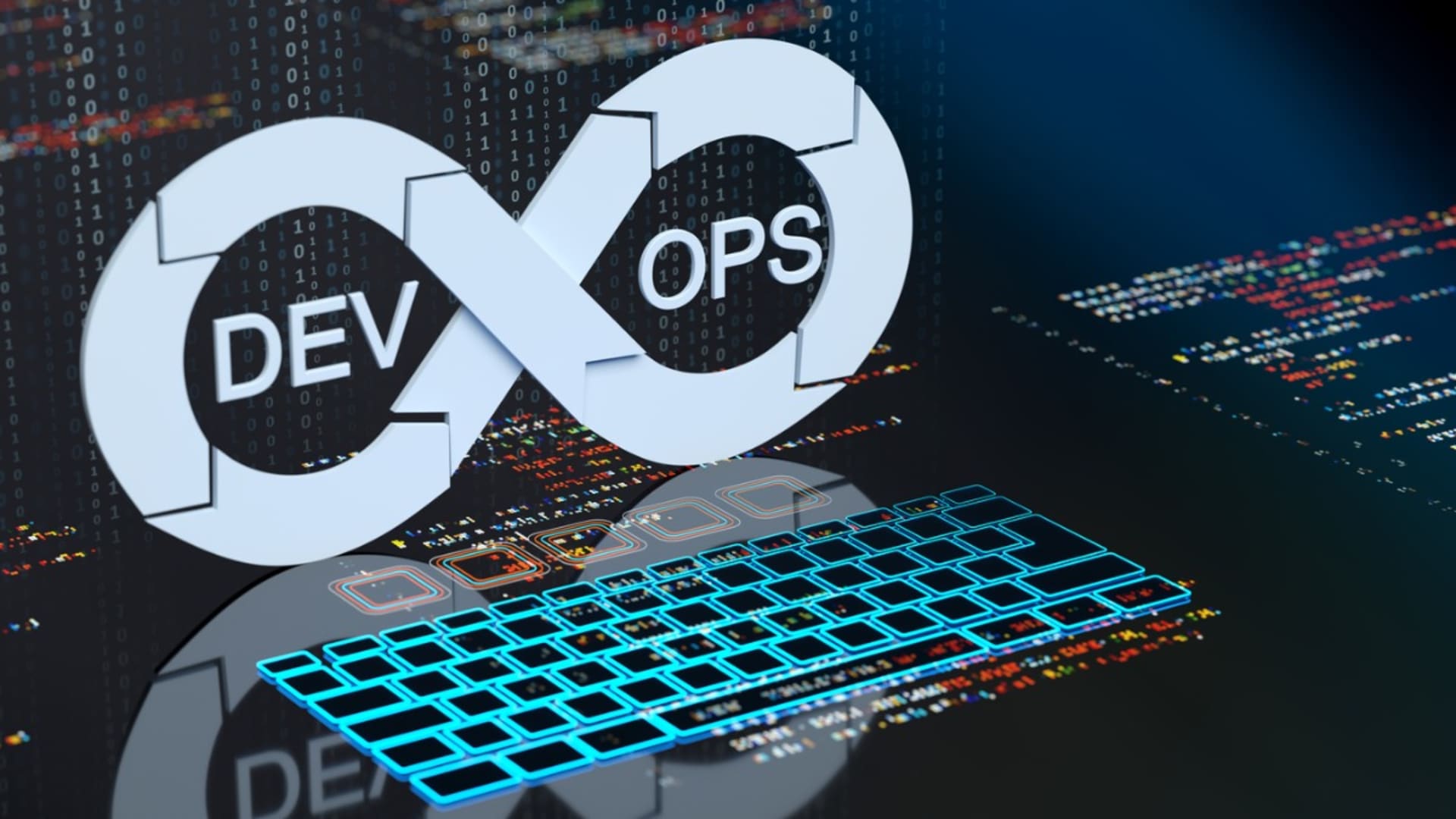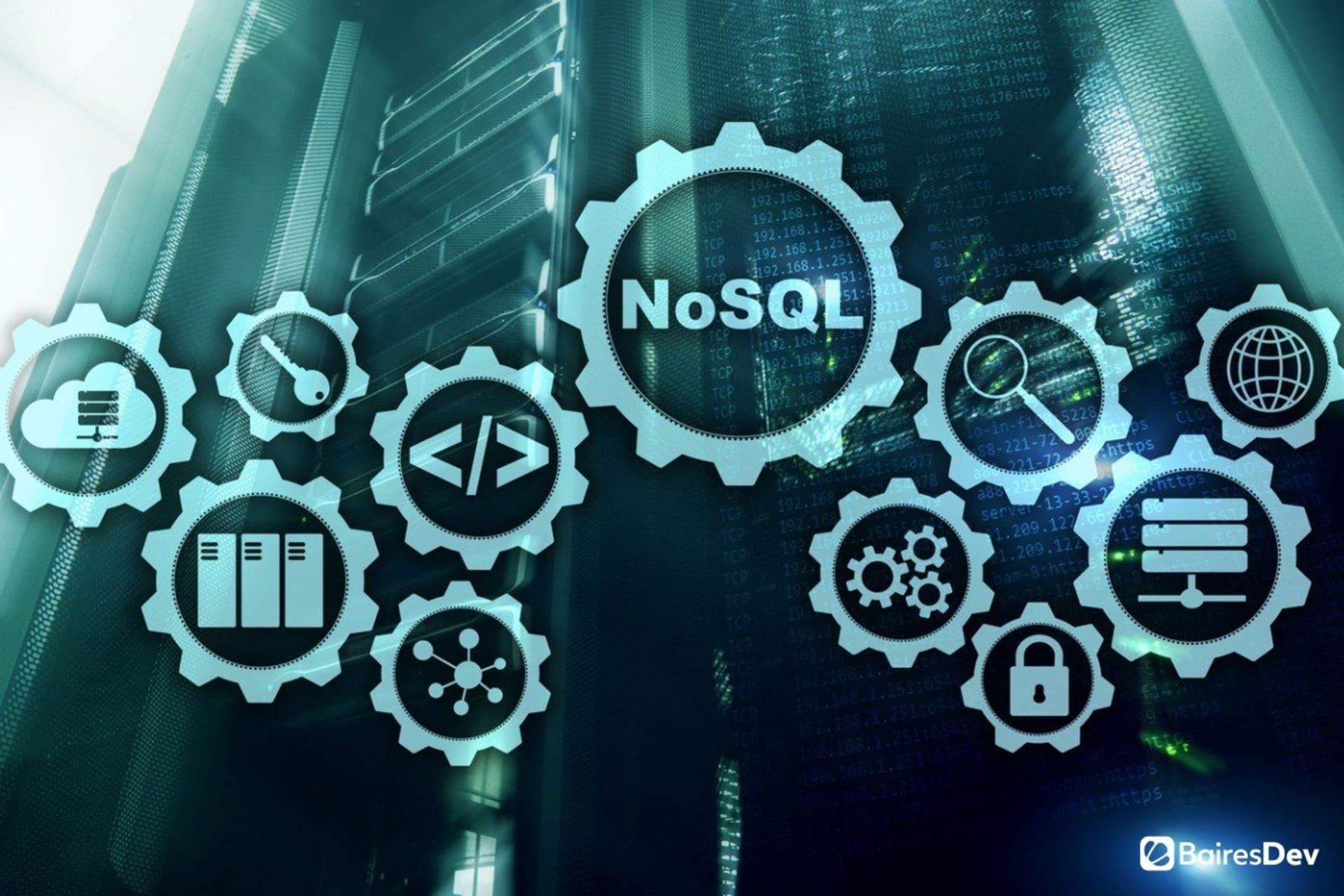- Home
- Technologies
- Amazon Web Services
- Hire Amazon Web Services Developers
Hire Amazon Web Services Developers
Hire vetted Amazon Web Services talent.
Our top 1% of tech talent has already undergone a rigorous vetting process. Get bilingual, nearshore Amazon Web Services developers on your team within 2 weeks.
500+ companies rely on our top 1% tech talent.
No time to find the top talent yourself? Skip the hassle of recruitment.




The Ultimate Guide for Hiring AWS Developers
Thanks to cloud computing, achieving scalability, flexibility, and security in the modern technology landscape has become far simpler. As reliance on cloud services grows, so does the demand for reliable developers with expertise in this area.
Amazon Web Services (AWS), a leading cloud provider, has become a staple in cloud infrastructure services. Across industry sectors, businesses rely on AWS to deliver reliable and easily accessible cloud solutions. To create these solutions, they need qualified AWS developers.
Over the past 15+ years, we've honed our hiring process to identify the top 1% of LATAM software development talent and meet this growing demand. Each year, we vet more than 1.5 million candidates. Based on our experience, we created this guide to help you find and hire the best AWS developers for your business needs.
Before You Start Hiring
1. Project or Team Requirements
Skills alignment, experience level, team dynamics, and cost efficiency all play a role in determining the type of developer you need, their seniority, and more. By considering project and team requirements, you'll be better equipped to make informed hiring decisions. Establish requirements upfront that contribute to the short and long-term success of your project and team.
2. Timeline and Budget
It's critical for businesses to meet project deadlines to avoid costly delays and losing important opportunities. Hiring an experienced AWS developer helps accelerate development and stay competitive. You should also establish a budget to control costs and allocate resources effectively.
3. Niche Experience
Niche experience in key technologies and industry sectors enhances innovation and project execution. Look for developers with specialized skill sets, including industry-specific expertise. They can contribute to risk mitigation and competitive differentiation because they understand your standards, compliance requirements, and more.
4. Experience in Your Preferred Methodology
Whether your team follows Agile, Scrum, DevOps, or another approach, look for AWS developers who have experience with your team's preferred methodology. This facilitates seamless integration into your team, enhances efficiency and productivity, and allows you to ensure quality and consistency throughout the software development lifecycle.
5. Culture Fit
Culture fit is crucial when you're hiring an AWS developer because they won't be working alone. Your developer must fit in with your organizational culture and collaborate effectively with team members. This also promotes a positive work environment for everyone involved.
23 Skills Every AWS Developer Should Have
A widely used cloud platform, AWS provides scalable and efficient infrastructure services, such as computing power, storage, and networking capabilities. With more and more businesses relying on cloud computing platforms, AWS developers are increasingly in demand.
However, expertise in AWS alone is not enough. AWS developers should also have a broad range of technical and interpersonal skills to work productively and effectively and deliver high-quality results.
During the hiring process, you should look for skilled AWS developers with these technical and soft competencies.
Technical Skills to Look for in Your Ideal AWS Developer
1. AWS Core Services
Core services such as EC2, S3, RDS, and VPC are the backbone of AWS offerings. Because these are the services most commonly used by customers, AWS developers should master them first. This knowledge facilitates tasks like hosting applications, databases, storage, and basic networking.
2. AWS Architecture and Best Practices
Adhering to architecture principles and best practices is essential for building a performant, secure, and resilient AWS infrastructure. AWS developers should be familiar with tools such as the AWS Well-Architected Framework to create a solid foundation.
3. Security
Security is paramount in software development. AWS developers should know AWS security fundamentals and best practices. These include managing IAM roles and policies, using security groups, network ACLs, AWS Key Management Service (KMS), and understanding the shared responsibility model.
4. Programming Skills
In order to write scripts and manage applications, developers should be proficient in the programming languages and tools that are commonly used in AWS environments. Examples include Python, Java, Ruby, and Node.js.
5. Networking
AWS developers should understand AWS-specific networking concepts, such as VPCs, Direct Connect, Route 53, ELB, and others. This is important for designing and maintaining network architectures in the cloud.
6. Database and Storage Solutions
Candidates should have a deep understanding of database and storage solutions for more effective data management, optimization, scalability, cost efficiency, security, integration, and accessibility. They should be proficient with AWS database services like RDS, DynamoDB, and Redshift, and storage solutions such as S3, Glacier, and EFS.
7. Monitoring and Troubleshooting
Candidates should have experience with monitoring tools like AWS CloudWatch, AWS X-Ray, and third-party tools like Datadog or Splunk. They should be able to log, monitor, and diagnose environments within AWS to ensure optimal performance and availability.
8. APIs and SDKs
Familiarity with AWS SDKs and APIs is important for efficient integration of various services, automation, scalability, customization, rapid development and deployment, enhanced security, and cost efficiency.
9. Cost Optimization
AWS developers need to understand cost management on AWS to use resources efficiently, manage budgets, and maximize ROI. These skills includes using cost calculator tools, selecting pricing models, and optimizing resource usage to reduce costs.
10. Serverless Architecture
Serverless architecture allows developers to build and run applications without managing servers. This enables them to focus more on their product rather than on infrastructure management. Candidates should be proficient in developing serverless applications using AWS Lambda. They should also be skilled in leveraging event-driven architectures with services like Amazon SNS (Simple Notification Service) and SQS (Simple Queue Service).
11. Networking and Content Delivery
A strong understanding of Amazon CloudFront and AWS Global Accelerator helps developers optimize application delivery and improve the UX across locations.
12. DevOps and Automation
DevOps practices, combined with automation tools like AWS CloudFormation or Terraform for infrastructure as code, accelerate software delivery by automating development, testing, and deployment. Candidates should have experience with CI/CD pipelines using AWS CodeBuild, CodeDeploy, and CodePipeline. They should also understand container services like ECS or EKS.
13. Hybrid Cloud and Migration
Candidates should have experience with hybrid cloud services and architectures for enabling integration between on-premises and cloud infrastructures. They should be familiar with AWS Direct Connect, AWS Migration Hub, and other migration services. This is particularly important for businesses transitioning from on-premises data centers to the cloud.
14. Big Data and Analytics
Businesses across industry sectors grapple with enormous amounts of data. Candidates should be able to manage and analyze big data with AWS tools like Amazon EMR (Elastic MapReduce), AWS Glue, and Amazon Athena.
15. Machine Learning and AI
As businesses increasingly search for opportunities to incorporate AI solutions into their operations, knowledge of machine learning and AI is important for any software developer. AWS developers should have experience with AWS AI and machine learning services such as Amazon SageMaker, AWS DeepRacer, and AWS DeepLens.
16. Resilience and Disaster Recovery
AWS developers need to have knowledge of strategies for high availability, fault tolerance, and disaster recovery using AWS services, including AWS Backup and Amazon Disaster Recovery services. This is essential for data protection and business continuity.
17. Compliance and Governance
Businesses must be compliant with regulations and laws regarding AWS, particularly in industries that deal with large amounts of sensitive data. Look for candidates with knowledge of services like AWS Config, AWS Shield, and AWS CloudTrail.
18. Edge Computing
Experience with AWS IoT and AWS Greengrass is helpful for edge computing scenarios. In these instances, processing takes place close to the data source, as opposed to in centralized cloud environments.
19. Blockchain
AWS developers should understand how to use AWS Blockchain Templates and Amazon Managed Blockchain to create and manage scalable blockchain networks. Blockchain technology can help solve challenges related to trust, decentralization, and data-sharing.
Soft Skills to Look for in Your Ideal aws Developer
20. Communication Skills
AWS developers must have strong communication skills to express their ideas and work effectively in a team environment. These skills are essential for collaborating with others, sharing ideas, understanding requirements, and resolving conflicts. An AWS developer also leverages communication skills to write clear and comprehensive documentation.
21. Problem-Solving
Problem-solving skills allow developers to find innovative solutions to complex challenges. By identifying the causes of problems, an AWS developer can apply practical solutions, optimize and improve systems, and navigate an evolving landscape.
22. Adaptability
AWS developers should be flexible in adjusting to new challenges and environments. The platform—and software development landscape—is constantly evolving, and developers must be able to respond effectively to new challenges and opportunities.
23. Attention to Detail
An AWS developer's attention to detail affects the security, reliability, and efficiency of cloud infrastructure and applications. This is crucial in ensuring that AWS projects are complete, sustainable, and successful.
12 Questions to Identify Top AWS Developers
When interviewing AWS developers, it's important to ask questions that first assess the candidates' technical skills and knowledge. Employers will also usually conduct a coding test to further assess specific on-the-job knowledge.
The following set of questions aims to uncover not only the developer's technical knowledge but also their problem-solving abilities, teamwork, communication skills, and adaptability—all crucial traits for success in a collaborative environment.
Here are a few examples of technical interview questions:
1. Describe AWS and some of its key services.
Amazon Web Services (AWS) is a widely used cloud platform that offers a range of services for computing, storing data, and delivering content. Key services within AWS include:
- Amazon EC2: Provides scalable computing capacity in the cloud, allowing users to run virtual servers.
- Amazon S3: Offers scalable object storage, ideal for data backup, archival, and analytics.
- Amazon RDS: Simplifies the setup, operation, and scaling of relational databases.
- AWS Lambda: Enables running code for various types of applications or backend services without managing servers.
- Amazon VPC: Allows users to provision a logically isolated section of the AWS Cloud for enhanced security.
- AWS IAM: Manages secure access to AWS services and resources.
2. How do you secure data in AWS?
To secure data in AWS, I employ a variety of practices and technologies. For encrypting data at rest, I use services like Amazon S3, EBS, and RDS, which support built-in encryption capabilities. To ensure data is encrypted during transmission, I leverage TLS (Transport Layer Security) across all services. Additionally, I use AWS IAM (Identity and Access Management) to control user and group access to AWS resources. For logging and monitoring API interactions across the AWS infrastructure, I utilize AWS CloudTrail. I conduct regular audits and compliance checks using tools like AWS Config and AWS Inspector to maintain and enhance security protocols.
3. Describe the AWS Shared Responsibility Model.
The AWS Shared Responsibility Model is a policy framework outlining the security responsibilities and obligations of Amazon Web Services and its customers. Its purpose is to ensure that the cloud environment is secure and compliant. Essentially, under the model, AWS is responsible for the "security of the cloud." This means that AWS manages the infrastructure that runs all services that the AWS Cloud offers, including hardware, software, and networking.
Meanwhile, the customer is responsible for "security in the cloud." In other words, the customer is responsible for managing the security of the data they store on AWS services. This includes the configuration of security settings and network controls and the management of guest operating systems and application software. Customers are also responsible for specific configurations, identity and access management, and data encryption.
There are also shared controls where AWS and customers are jointly responsible, including patch and configuration management. Customers need to comply with any relevant laws and regulations. An example is setting up secure server access and ensuring encrypted data transmission. Customers must secure their own virtual infrastructure configurations, while AWS is responsible for the security configuration of its physical infrastructure.
4. How do Amazon RDS and DynamoDB differ? When would you use one over the other?
Amazon RDS (Relational Database Service) and Amazon DynamoDB differ in their database structures and use cases. Amazon RDS is a managed relational database service that supports database engines like MySQL, Oracle, PostgreSQL, and SQL Server. RDS is used for applications that demand complex transactions, operations, and joins that utilize a structured schema and SQL querying.
Amazon DynamoDB is a managed NoSQL database service that is designed for applications requiring consistent and single-digit millisecond latency at any scale. The service supports key-value and document data models. It is suitable for scalable and high-performance applications that need flexible data models and rapid access to data. Examples include mobile apps, IoT apps, and games.
I would use RDS when I'm working with complex queries and transactional data that demand SQL, structured data consistency, and relational data modeling. I would use DynamoDB when I'm working with applications that must handle large volumes of data with high throughput and low-latency access in non-relational formats that demand scalability and performance.
5. How do you monitor and troubleshoot applications in AWS?
To monitor and troubleshoot applications on the AWS platform, I utilize a combination of tools and best practices.
- For monitoring, I use AWS CloudWatch, which collects and tracks metrics, collects and monitors log files, and sets alarms for AWS resources and applications running on the platform.
- For analyzing and debugging distributed applications, I use AWS X-Ray. This helps in tracing requests through the application and shows a map of the application’s underlying components.
- Additionally, I employ AWS CloudTrail to facilitate governance, compliance, operational, and risk auditing by recording and storing account activity and API usage.
- For advanced troubleshooting, I use Elastic Load Balancing (ELB) Access Logs, which provide detailed records about requests sent to my load balancers, and Amazon S3 Bucket Logging for conducting security and access audits.
6. How do you use an AWS software development kit to simplify development?
An AWS Software Development Kit (SDK) helps simplify the integration of applications with AWS services. I use language-specific SDKs to manage various resources, such as storing objects in S3 buckets or launching and managing EC2 instances. That means I don't need to handle low-level API calls myself. SDKs provide convenient methods and objects to handle request retries, errors, authentication requests, and other details. This accelerates the development project and ensures that my app leverages AWS services securely and robustly.
7. What is Amazon ECS Auto Scaling?
Amazon ECS Auto Scaling is a feature of the Amazon Elastic Container Service (ECS). It automatically adjusts the number of ECS tasks running to match your application's demand. This ensures your application maintains consistent performance and availability by scaling up to add tasks during peak loads and scaling down to remove tasks during periods of lower traffic.
8. What are AWS security groups and how do they work?
In AWS, security groups function as a virtual firewall for EC2 instances. They control inbound and outbound traffic. You can associate an instance with your previously defined security groups once you launch it. It's also possible to configure and modify rules for a security group, enabling traffic to flow to and from instances.
9. Describe a project you worked on that utilized AWS. What services did you use and why?
Gain insight into the candidate's practical experience with AWS, such as the services they've used and how they choose among the services.
10. How do you handle feedback or constructive criticism?
Feedback is integral to an AWS developer's work and growth. You should look for a developer who is able to accept feedback and learn from it.
11. What experience do you have with working in a team environment?
Team harmony is essential. This will help you understand how the candidate collaborates with colleagues.
12. Describe a time when you had to optimize AWS costs for a project. What strategies did you use?
This question evaluates the developer's ability to manage costs using AWS cost management tools like Cost Explorer, Trusted Advisor, and third-party solutions.
Frequently Asked Questions
What is the AWS cloud environment?
The AWS environment is a collection of infrastructure services that enable businesses to run applications and store data on Amazon's network of server clusters across global data centers. AWS solutions include computing power (EC2), storage (S3), databases (RDS), application services, and more, all accessible over the internet.
How do I find highly skilled AWS developers?
When you're looking for qualified AWS developers, consider both full-time, in-house developers and outsourcing providers. Use a combination of strategies, including exploring job boards, leveraging professional networks, and utilizing job search sites. Thoroughly vet all candidates by considering factors like their portfolios, references, and expertise in niche AWS technologies. AWS certifications are a plus.
What should I look for in AWS development services?
When you're looking for AWS development services, consider factors such as experience with AWS projects, security practices, experience in your industry sector, scalability and performance procedures, and client reviews and references.
How do I verify an AWS developer’s expertise?
In addition to reviewing certifications and experience, you should verify an AWS developer's expertise by conducting technical interviews, reviewing portfolios of past projects, and administering AWS-specific coding assessments.
What are AWS Managed Services?
AWS Managed Services (AMS) provides IT infrastructure operations support for AWS environments. This service handles incident, change, and problem management, among other ITIL processes. AMS automates various activities such as change requests, monitoring, security, patch management, and backups. This helps organizations maintain their AWS infrastructure efficiently and effectively.
What does an AWS DevOps engineer do?
An AWS DevOps engineer manages and implements CI/CD pipelines on AWS platforms. This automates software development, testing, and deployment. The DevOps engineer bridges the gaps between development (dev) and operations (ops) teams to ensure a smooth and efficient software development lifecycle.
What are common tools and technologies AWS developers should be familiar with?
AWS developers should have a strong understanding of AWS services such as EC2, S3, RDS, Lambda, and DynamoDB. They should also be familiar with DevOps tools, CI/CD pipelines (e.g., Jenkins or GitHub Actions), and containerization technologies (e.g., Docker or Kubernetes).
What type of projects require an AWS developer?
Examples of projects that often require an AWS developer include those requiring scalable and high-availability applications or specific AWS services like managed databases, machine learning, or serverless architectures.
How do I handle data security when working with AWS developers?
When you're working with AWS developers, you should ensure that they follow best practices for cloud security. These practices include using IAM roles and policies, enabling encryption, and maintaining regular security audits. Additionally, enforce legal agreements such as NDAs to help protect sensitive data.
What are some soft skills to look for in an AWS developer?
When you're hiring an AWS developer, you should look for soft skills such as effective problem-solving, communication, adaptability, and teamwork. These skills are essential for collaborating with team members, adapting to diverse technologies and changing requirements, and navigating complex projects and challenges.

- Hire Amazon Web Services Developers
How Businesses Can Overcome the Software Development Shortage
BairesDev Ranked as one of the Fastest-Growing Companies in the US by Inc. 5000











